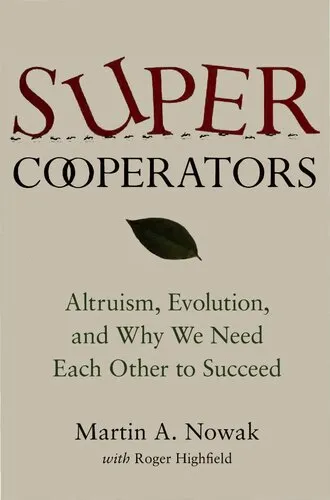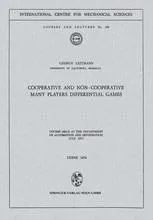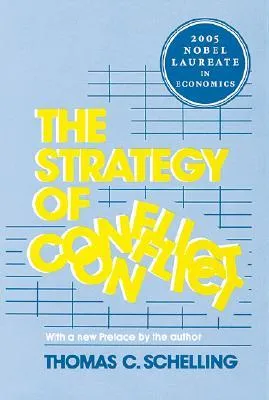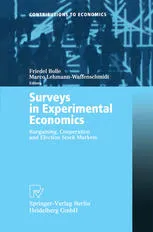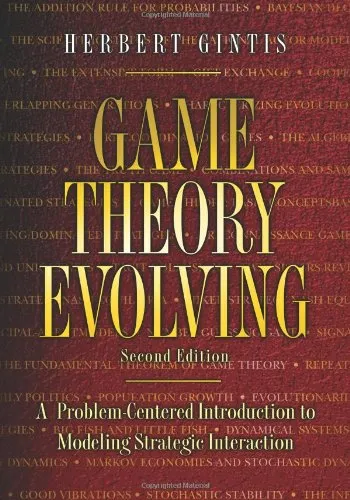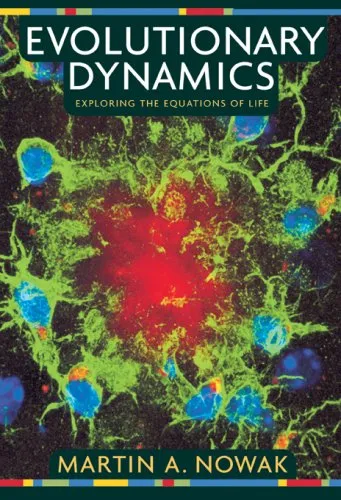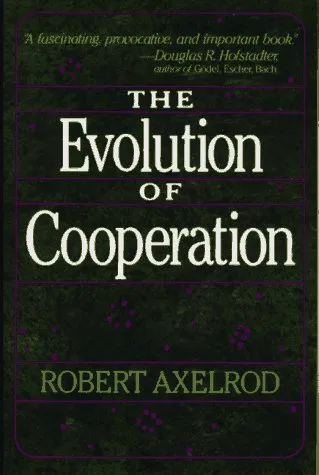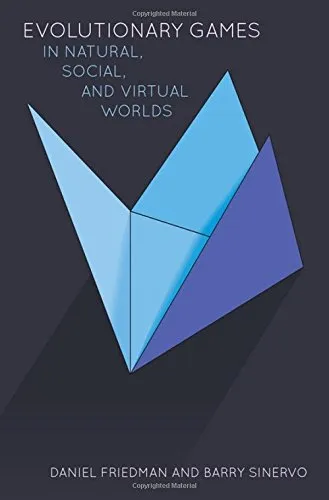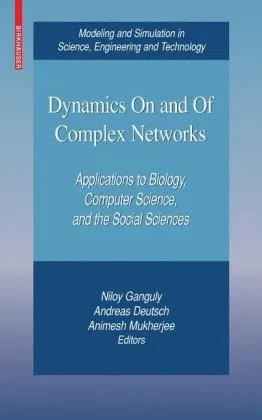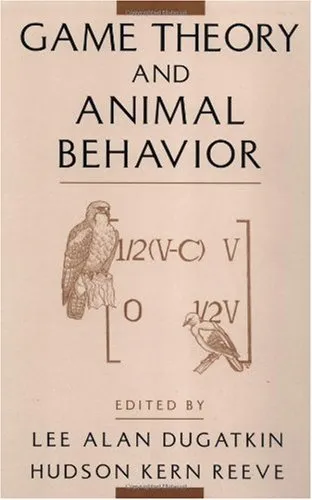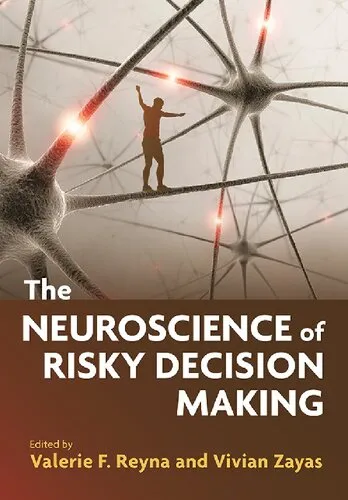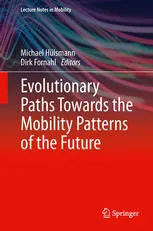Supercooperators - Altruism, Evolution, and Why We Need Each Other to Succeed
4.5
بر اساس نظر کاربران

شما میتونید سوالاتتون در باره کتاب رو از هوش مصنوعیش بعد از ورود بپرسید
هر دانلود یا پرسش از هوش مصنوعی 2 امتیاز لازم دارد، برای بدست آوردن امتیاز رایگان، به صفحه ی راهنمای امتیازات سر بزنید و یک سری کار ارزشمند انجام بدینکتاب های مرتبط:
مقدمهای بر کتاب "Supercooperators - Altruism, Evolution, and Why We Need Each Other to Succeed"
کتاب Supercooperators نوشته مارتین ای. نوواک و راجر هایفیلد، یکی از نوشتههای برجسته و تأثیرگذار علم زیستشناسی فرگشتی و رفتار انسانی است. در این اثر، نویسندگان به بررسی اصول همکاری (Cooperation) به عنوان یکی از اساسیترین عوامل بقای زیستی و پیشرفت بشریت میپردازند. آنها با ترکیب مشاهدههای علمی، نظریههای پیچیدهی ریاضیاتی (از جمله بازی Evolutionary Game Theory) و داستانهای جذاب انسانی، مخاطب را به سفری شگفتانگیز دعوت میکنند که درک ما از تکامل، نوعدوستی (Altruism) و همکاری متحول میکند.
خلاصهای از کتاب
کتاب Supercooperators از این ایده اساسی آغاز میشود که برخلاف برداشت سنتی از نظریه تکامل چارلز داروین به عنوان جنگ بیپایان برای بقا، همکاری میان موجودات زنده نقش کلیدی در بقا و موفقیت زیستی ایفا میکند. نوواک به عنوان ریاضیدان و زیستشناس برجسته، نشان میدهد چگونه فرمولهای همبستگی ریاضی و مدلهای بازی Evolutionary Game Theory میتوانند رفتارهای همکاری و نوعدوستی را توضیح دهند.
نویسندگان چندین مثال شگفتانگیز از طبیعت ارائه میکنند، از جمله همکاری میان مورچهها، دلفینها، و حتی سلولها در بدن انسان. این کتاب همچنین تأثیر همکاری را در سطوح اجتماعی و انسانی بررسی میکند، از جمله چگونه بقای گروهها و جوامع به همکاری میان افراد بستگی دارد.
نکات کلیدی کتاب
- همکاری اساس همه پیشرفتهای زیستی است. زیستشناسی بدون فهم این پدیده ناقص میماند.
- نوعدوستی و همکاری همیشه با هزینههایی همراه است، اما این هزینهها در درازمدت منجر به برتری زیستی میشوند.
- بازی Evolutionary Game Theory بهترین ابزار برای مدلسازی رفتارهای همکاری در طبیعت است.
- همه اقدامات همکاری در گروهها بستگی به پنج مکانیزم اصلی دارند: Direct Reciprocity، Indirect Reciprocity، Spatial Selection، Kin Selection و Group Selection.
- تکامل از طریق همکاری میتواند چالشهای اجتماعی مدرن را حل کند، از نابرابری تا تغییرات آب و هوایی جهانی.
جملات مشهور از کتاب
“Without cooperation, life as we know it would not exist.”
“Natural selection favors not only the cleverest and strongest, but also the kindest individuals working together in a network of mutual aid.”
چرا این کتاب مهم است؟
Supercooperators نه تنها به درک عمیقتر ما از زیستشناسی فرگشتی کمک میکند، بلکه پیامهای اجتماعی قدرتمندی دارد. در دنیایی پر از تضاد و رقابت، این کتاب نشان میدهد که همکاری تنها راه ما برای بقا و پیشرفت است. پیام این کتاب برای جوامع انسانی و محیط زیست ضروری است: ما نیاز به همبستگی و مقاومت جمعی برای حل مشکلات جهانی همچون تغییرات اقلیمی، نابرابری اقتصادی و بحرانهای اجتماعی داریم.
همچنین این کتاب ابزارهای علمی جدیدی برای مطالعه و سنجش همکاری ارائه میدهد که برای زیستشناسان، دانشمندان علوم اجتماعی و حتی سیاستمداران ارزشمند است.
Introduction to 'Supercooperators - Altruism, Evolution, and Why We Need Each Other to Succeed'
Written by the eminent evolutionary biologist Martin A. Nowak, alongside science writer Roger Highfield, "Supercooperators" is a thought-provoking exploration into one of the most puzzling and profound aspects of life—cooperation. This groundbreaking book delves into the science of altruism and explains why cooperation is not only a fundamental driving force of evolution but also the cornerstone of human success and thriving societies. It portrays evolutionary theory in a new light, shifting from competition-centered Darwinism to a vision that elevates collaboration as an equal, if not greater, force in shaping our world.
Nowak and Highfield employ a captivating mix of cutting-edge science, historical anecdotes, and forward-thinking ideas to unravel the mystery of why individuals often choose to act for the good of others, even at their own apparent expense. By blending mathematical precision with humanistic storytelling, the book delivers a powerful narrative that asks us to rethink our place in the natural order. "Supercooperators" makes a compelling case that cooperation is not merely a byproduct of evolution but a vital ingredient that continually propels it forward.
Detailed Summary of the Book
At its core, "Supercooperators" takes on the age-old question of why humans (and other organisms) often engage in behaviors that benefit others—sometimes at cost to themselves. The authors begin by outlining the classical view of evolution, which often emphasizes individual survival and competition. Then, they introduce the idea that cooperation is just as fundamental as competition in driving evolutionary progress. The book presents five key mechanisms of cooperation: direct reciprocity, indirect reciprocity, spatial selection, multilevel selection, and kin selection.
Nowak supports his theories with vivid case studies such as the selflessness of ants, the collective behavior of slime molds, and the moral dilemmas faced by humans. Mathematical models play a pivotal role, helping readers grasp the underlying principles of cooperation and offering fresh insights into genetic and social dynamics. Through concrete examples and theoretical frameworks, the book explores why trust, generosity, and altruism persist in nature.
In addition to laying out the quantitative science behind cooperation, Nowak and Highfield expand their discussion to humanity’s challenges—ranging from climate change to global healthcare—and argue that fostering greater cooperation may hold the key to solving these complex problems. Their conclusion: To succeed, humanity must embrace cooperation rather than succumbing to the traps of selfishness, defection, and isolation.
Key Takeaways
- Cooperation is just as significant as competition in evolutionary biology.
- There are five central mechanisms that drive cooperative behavior, including direct reciprocity and kin selection.
- Mathematical models can help predict when and how cooperation emerges in nature.
- Altruism is not a paradox but an evolutionary strategy that can benefit groups and individuals in the long term.
- Humanity must prioritize global cooperation to tackle pressing issues like climate change, pandemics, and inequality.
Famous Quotes from the Book
"Selfishness beats altruism within groups. Altruistic groups beat selfish groups. Everything else is commentary."
“Cooperation is the architect of creativity throughout evolution, from the formation of simple cells to the emergence of complex civilizations.”
Why This Book Matters
"Supercooperators" occupies a unique place in the literature of evolutionary biology by firmly establishing cooperation as a critical factor in understanding life’s complexity. The book is more than just a scientific manual—it's a philosophical reflection about humanity’s potential to thrive in harmony, rather than conflict. It challenges the often cynical view of human nature by demonstrating that altruism is far from unnatural; instead, it is deeply embedded in our evolutionary heritage.
In an era defined by division and competition, this book’s insights are particularly relevant. It lays a scientific groundwork for fostering trust, collaboration, and collective progress, highlighting that our future success hinges on the power of working together rather than acting in isolated self-interest. Whether you're a scientist, policymaker, or simply a curious reader, "Supercooperators" offers profound perspectives that can inspire both personal growth and societal change.
دانلود رایگان مستقیم
شما میتونید سوالاتتون در باره کتاب رو از هوش مصنوعیش بعد از ورود بپرسید
دسترسی به کتابها از طریق پلتفرمهای قانونی و کتابخانههای عمومی نه تنها از حقوق نویسندگان و ناشران حمایت میکند، بلکه به پایداری فرهنگ کتابخوانی نیز کمک میرساند. پیش از دانلود، لحظهای به بررسی این گزینهها فکر کنید.
این کتاب رو در پلتفرم های دیگه ببینید
WorldCat به شما کمک میکنه تا کتاب ها رو در کتابخانه های سراسر دنیا پیدا کنید
امتیازها، نظرات تخصصی و صحبت ها درباره کتاب را در Goodreads ببینید
کتابهای کمیاب یا دست دوم را در AbeBooks پیدا کنید و بخرید
1407
بازدید4.5
امتیاز0
نظر98%
رضایتنظرات:
4.5
بر اساس 0 نظر کاربران
Questions & Answers
Ask questions about this book or help others by answering
No questions yet. Be the first to ask!
